The Adversary (2002): journey to the heart of horror | un viaje al corazón del horror

It's been a few years since I first read French writer Emmanuel Carrère's L'Adversaire and about six months since I read it again, and although I really enjoyed it and it's one of the best books I've read in its genre, I hadn't seen any of the three film adaptations that have been made to date. Finally, a couple of nights ago, I chose to watch this one because it's the one that retains the title of the original work and - from the little I read of the synopsis - the one that seems to be the most faithful to Carrère's book.
Han pasado algunos años desde que leí por primera vez el libro L'Adversaire del escritor francés Emmanuel Carrère y unos seis meses desde que lo leí de nuevo y aunque me gustó mucho y es uno de los mejores libros que he leído en su género, no había visto ninguna de las tres adaptaciones cinematográficas que se han hecho hasta la fecha. Finalmente, hace un par de noches, escogí ver esta por ser la que conserva el título de la obra original y - por lo poco que leí de las sinopsis - la que parece ser la más fiel al libro de Carrère.
L'adversaire (The Adversary) tells the story of Jean-Marc Faure, a middle-class French man with a seemingly normal life. He has a beautiful and devoted wife named Christine, and two young and charming children, Alice and Vincent. At the beginning of the film we see them living their lives in a modest fifty-square-meter apartment and we also see Jean-Marc driving a not-so-recent model car. But the man is a doctor and has a good job, a position at the internationally famous World Health Organization, and so no one is surprised when the Faures move to a bigger house and when Jean-Marc buys a newer car. Christine is a pharmacist, a more modest job than her husband's, and together they take care of raising their children, getting them ready for school, reading them stories at night and taking them to birthday parties. On the face of it, the Feures are an ideal couple without being perfect - because, like everyone, they will have some kind of disagreement from time to time - but Jean-Marc's rather quiet and modest character makes him look good and both his parents and his in-laws have a positive image of him. Not to mention Christine, who loves him as much as the day they got married. So, with everything being so idyllic, so normal and ordinary, what is it that makes this such an intense and creepy story? Well, the first thing is that this whole facade is false: Jean-Marc's life is a lie.
L'adversaire (The Adversary) cuenta la historia de Jean-Marc Faure, un hombre francés de clase media con una vida aparentemente normal. Tiene una bella y dedicada esposa llamada Christine, y dos hijos pequeños y encantadores, Alice y Vincent. Al inicio de la película los vemos hacer su vida en un modesto departamento de cincuenta metros cuadrados y también vemos a Jean-Marc conducir un auto de modelo no muy reciente. Pero el hombre es médico y tiene un buen trabajo, un puesto en la internacionalmente famosa Organización Mundial de la Sallud y por eso nadie se sorprende cuando los Faure se mudan a una casa más grande y cuando Jean-Marc compra un auto más nuevo. Christine es farmaceuta, un empleo más modesto que el de su esposo, y entre ambos se encargan de la crianza de sus hijos, de alistarlos para el colegio, de leerles cuentos por las noches y llevarlos a fiestas de cumpleaños. Bien visto, los Feure son un matrimonio ideal sin ser perfectos - porque, como todo el mundo, tendrán algún tipo de desacuerdo de vez en cuando - pero el carácter más bien callado y modesto de Jean-Marc lo hace quedar bien y tanto sus padres como sus suegros tienen una imagen positiva de él. Ni qué decir de Christine que lo ama tanto como el día en que se casaron. Entonces, siendo todo tan idílico, tan normal y corriente, ¿qué es lo que hace que esta sea una historia tan intensa y espeluznante? Bueno, lo primero es que toda esa fachada es falsa: la vida de Jean-Marc es una mentira.
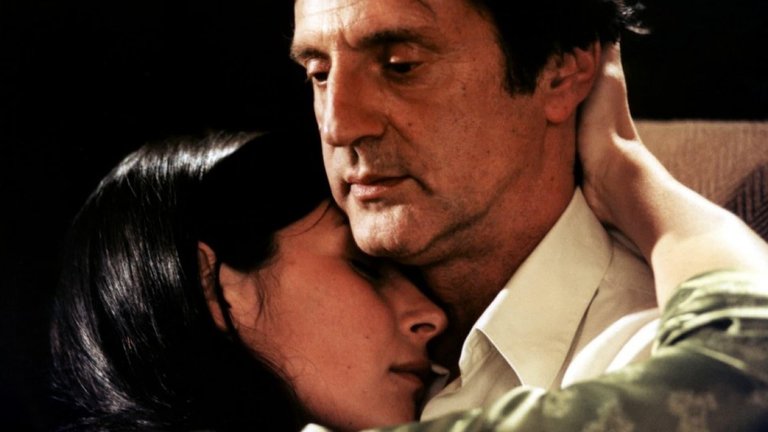
He doesn't have the money they think he has, he doesn't work and has never worked at the WHO, and he's not even a doctor! So how come no one noticed? How come his best friend Luc, who is also his colleague, didn't find out that Jean-Marc didn't finish his degree when they both studied at the same university? The list of questions could grow very long, but the core is the same: how come no one noticed? And the truth is as simple as it is laughable: they didn't ask. Or they didn't believe. Or, worse still, they didn't want to believe. They didn't want to see. Or they saw what they wanted.
No tiene el dinero que creen que tiene, no trabaja ni nunca ha trabajado en la OMS, y ¡ni siquiera es médico! Entonces, ¿cómo es que nadie se ha dado cuenta? ¿cómo es que su mejor amigo Luc, que además es su colega, no se ha enterado de que Jean-Marc no terminó la carrera si ambos estudiaron en la misma universidad? La lista de preguntas puede crecer muchísimo, pero el núcleo es el mismo, ¿cómo es que nadie lo notó? Y la verdad es tan simple como irrisoria: no preguntaron. O no creyeron. O, peor aún, no quisieron creer. No quisieron ver. O vieron lo que quisieron.
The film is based on the true story of Jean-Claude Romand (in the film the names have been changed, but the rest of the details have been kept fairly faithful to the story) as told by Emmanuel Carrère in his book, but which had already made the front pages of all the French newspapers and newsreels because this "journey to the heart of horror" didn't end with Jean-Claude's false life but with a multiple homicide. On January 9th, 1993, Jean-Claude murdered his wife, his two children, his parents (who lived about 80 km away), set fire to his own house and attempted suicide. How seriously he wanted to die is debatable, as he managed to survive the drug intake, but it was later revealed that he did what he did because his facade began to crack and on the verge of being discovered, instead of telling the truth and revealing the lies he had told since he was eighteen, he chose to silence his loved ones, those to whom he could no longer lie. He didn't have the courage to look them in the face and confess his truth, but he did have enough courage to shoot them. Although the film doesn't show the arrest or the trial, which Carrrère's book does, it does include some scenes of interrogations of witnesses and those of the murders. As expected, Romand was sentenced to life imprisonment, but what no one expected at the time was that he would be released after twenty-two years in prison, on June 28th, 2019, and that he would be confined to the Fontgombault Abbey. The man who murdered his parents, his wife and his children is no longer in jail.
La película está basada en la historia real de Jean-Claude Romand (en el film los nombres fueron cambiados, pero el resto de los detalles se mantuvieron bastante fieles a la historia) que fue contada por Emmanuel Carrère en su libro, pero que ya había ocupado las portadas de todos los periódicos franceses y de los noticieros porque este "viaje al corazón del horror" no culminó con la vida falsa de Jean-Claude si no con un mútiple homicidio. El 9 de enero de 1993, Jean-Claude asesinó a su mujer, a sus dos hijos, a sus padres (que vivían a unos 80 Km de distancia), incendió su propia casa e intentó suicidarse. Qué tan en serio quería morir, es debatible, pues logró sobrevivir a la ingesta de fármacos, pero luego se supo que hizo lo que hizo porque su fachada comenzó a agrietarse y a punto de verse descubierto, en vez de contar la verdad y revelar las mentiras que había contado desde los diecicoho años, optó por silenciar a sus seres queridos, esos a los que ya no podía mentirles. No tenía el valor para mirarlos a la cara y confesar su verdad, pero sí el suficiente para disparar contra ellos. Si bien la película no muestra la detención ni el juicio, cosa que sí hace el libro de Carrrère, sí incluye algunas escenas de interrogatorios a los testigos y las de los asesinatos. Como era de esperarse, Romand fue condenado a cadena perpetua, pero lo que nadie se esperaba entonces era que saldría tras veintidós años de prisión, el 28 de junio de 2019, y que se recluiría en la Abadía de Fontgombault. El hombre que asesinó a sus padres, a su esposa y a sus hijos ya no está en la cárcel.
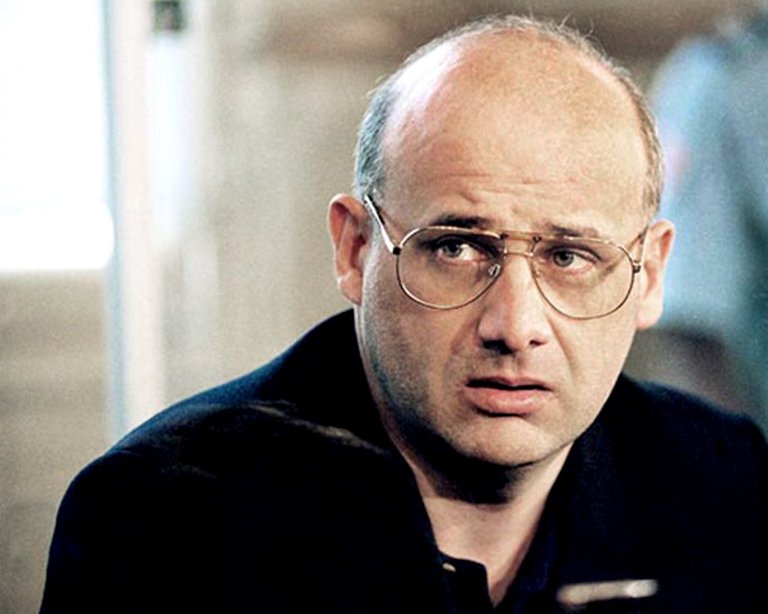
Unbelievable, terrifying, alarming, the case of Jean-Claude is, without a doubt, also interesting. That is why it attracted the attention of the French writer, who for his book went so far as to correspond with the murderer, and of the entire public, but even if you go over the matter in circles and review the facts again and again, it is hard to believe that everything that happened happened and that it was possible for him to deceive the world - but not himself - for so long and with things so central to any personality.
Inconcebible, terrorífico, alarmante, el caso de Jean-Claude es, sin duda alguna, también interesante. Por eso atrajo la atención del escritor francés, quien para su libro llegó a cartearse con el asesino, y de todo el público, pero aunque se le den mil vueltas al asunto y se revisen los hechos una y otra vez cuesta mucho creer que haya pasado todo lo que pasó y que le haya sido posible engañar al mundo - que no a sí mismo - durante tanto tiempo y con cosas tan centrales de cualquier personalidad.
Now, it's true that The Adversary is quite faithful to the real story, but I must also say that it seems to be a film made for those who read the book or who at least know the news (I don't know if that feeling is repeated with the other adaptations of the book, L'emploi du Temps (2001) and La vida de nadie (2002)). I think that if I hadn't read Carrère's book I wouldn't have understood things that were barely shown or that weren't told clearly. I like stories that are told in a non-linear way, but in this case I think that resource plays a bit against it because, in my opinion, it's easy for someone who's not familiar with the story to quickly lose interest in continuing to see the pieces before fitting them into the puzzle. In defense of director Nicole García, I must say that it's not easy to adapt a non-fiction book because the very nature of the work clashes with the essence of the other genre. A book like Truman Capote's In Cold Blood or Ivan Jablonka's Laëtitia ou la Fin des hommes - and like L'Adversaire itself - are more natural to tell through a documentary that narrates the events, but fictionalizing Jean-Claude's story, wanting to use somewhat complicated narrative resources and deciding not to tell anything about the trial or the news (which, I think, would have helped, creating a kind of thriller) was to accept a great challenge that, in my opinion, was not successful. Whether you have seen this film or not, the recommendation for everyone is the same: read Carrère's book. It's a great work born from a horrible story that will make you reflect on the depths of the human soul. Have any of you read it? I'll read you in the comments.
Ahora bien, es cierto que The Adversary es bastante fiel a la historia real, pero también debo decir que parece ser una película hecha para quienes leyeron el libro o quienes al menos conocen la noticia (no sé si esa sensación se repita con las otras adaptaciones del libro, L'emploi du Temps (2001)_ y La vida de nadie (2002)). Creo que de no haber leído el libro de Carrère no habría entendido cosas que se apenas mostraron o que no se contaron claramente. Me gustan las historias que son contadas en forma no lineal, pero en este caso creo que ese recurso juega un poco en contra porque, a mi parecer, es fácil que quien no esté familiarizado con la historia pierda pronto el interés en seguir viendo las piezas antes de encajarlas en el puzzle. En defensa de la directora Nicole García debo decir que no resulta fácil adaptar un libro de no ficción porque la misma naturaleza de la obra choca contra la esencia del otro género. Un libro como In Cold Blood de Truman Capote o Laëtitia ou la Fin des hommes de Ivan Jablonka - y como el propio L'Adversaire - resultan más naturales de contar a través de un documental que narre los hechos, pero ficcionalizar la historia de Jean-Claude, querer utilizar recursos narrativos algo complicados y decidir no contar nada del juicio ni de las noticias (lo que, creo yo, habría ayudado, creando una especie de thriller) era aceptar un gran desafío que, en mi opinión, no resultó exitoso. Hayan visto, o no, esta película, la recomendación para todos es la misma: lean el libro de Carrère. Es una gran obra nacida a partir de una historia horrible que los hará reflexionar sobre las profundidades del alma humana, ¿alguno de ustedes lo ha leído? Los leo en los comentarios.
Reseñado por @cristiancaicedo
Other posts that may interest you | Otros posts que pueden interesarte:
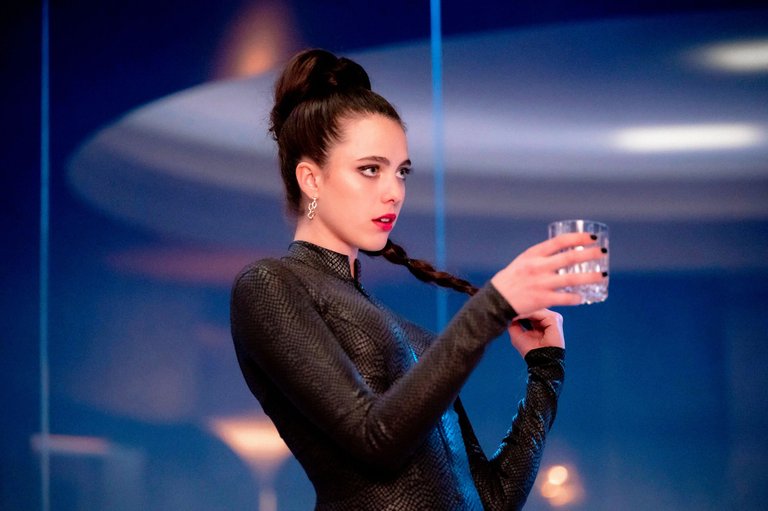  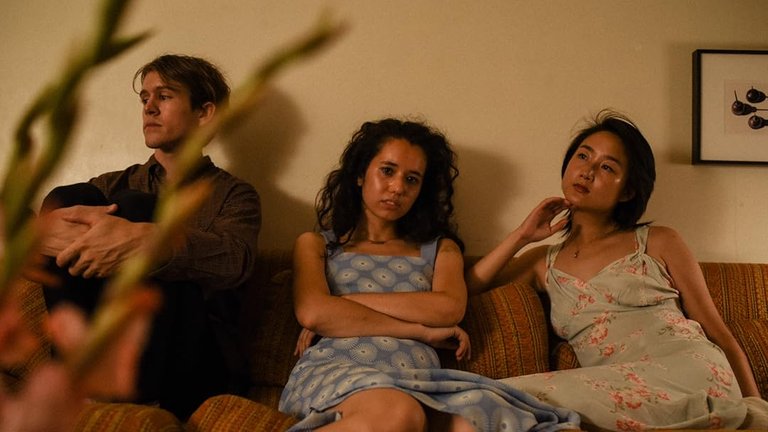 |
|---|
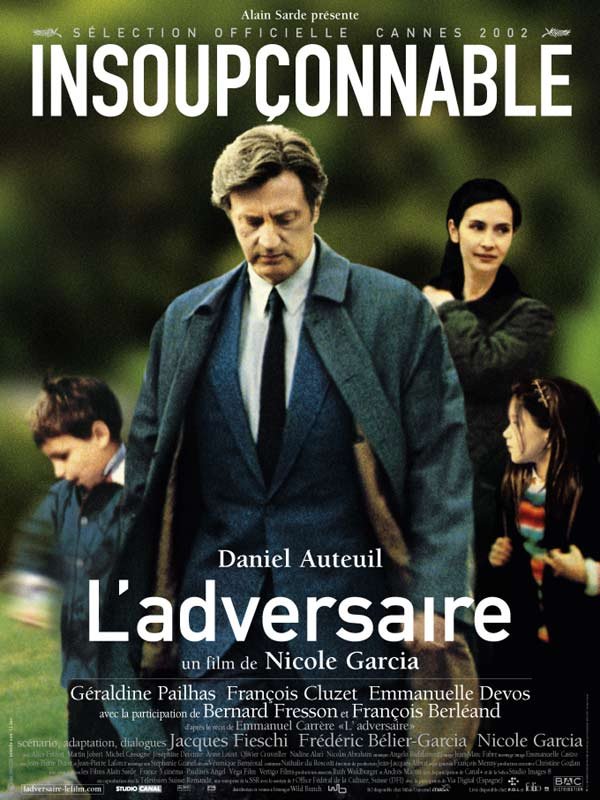
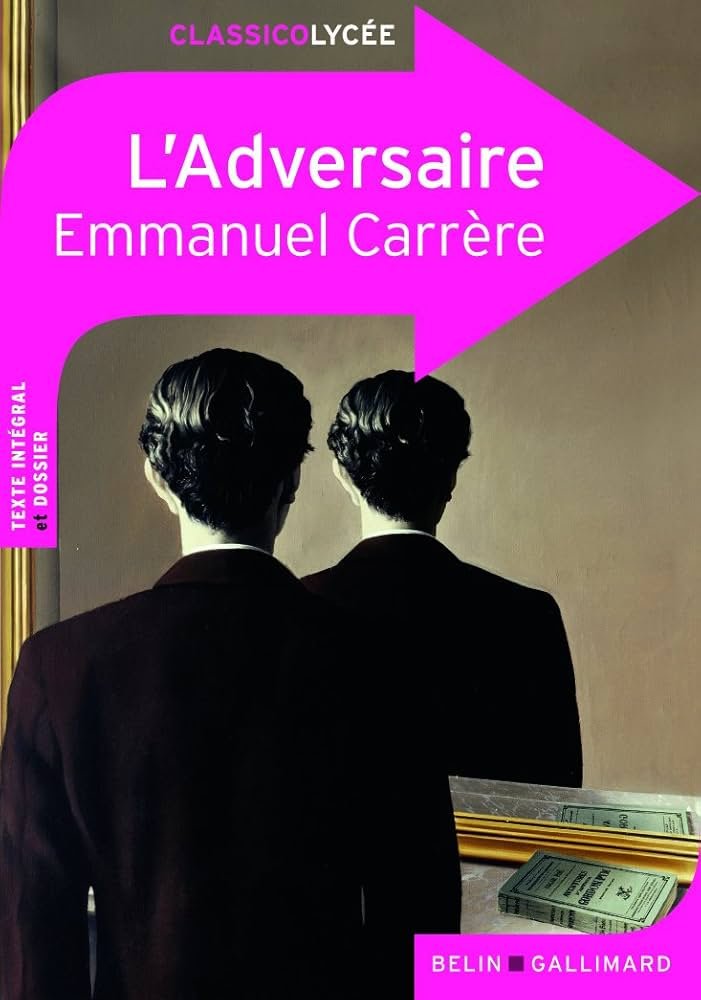
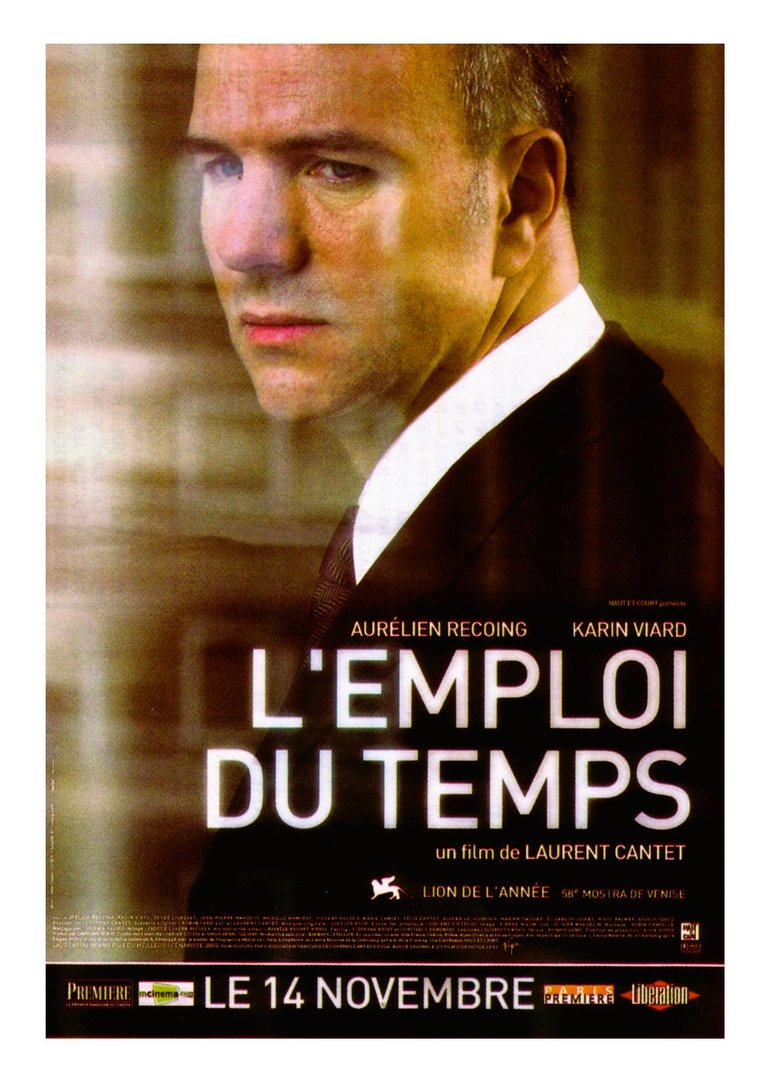

Lamentablemente no lo he leído🥲. Parece tan difícil de creer que nadie se haya dado cuenta de que todo era una mentira. Mientras leía tu reseña recordé un caso (que también se hizo muy famoso), algo parecido a este, estuvo en una serie de casos sin resolver porque al padre nunca lo encontraron, pero las razones son las mismas, mató a toda su familia porque su fachada se iba abajo. Tampoco he tenido la oportunidad de ver alguna de las adaptaciones, pero muy buena reseña 🤩
Muchas gracias por leerme y comentar. Si logras recordar más información sobre ese caso que mencionas, te lo agradecería para buscarlo. Que estés muy bien.